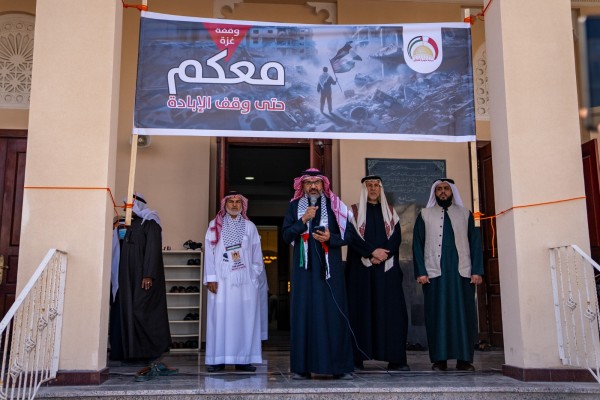Why Loyalist Parties Operate Beyond the Parliamentary Sphere

2024-01-23 - 6:20 p
Bahrain Mirror: One must wonder why all political societies are active, when it comes to sensitive Bahraini political issues, outside Parliament. Is it because loyalist societies still believe that this parliament can be part of any solution?
In 2002, the second parliamentary elections were held since the dissolution of the House of Representatives in 1973. The opposition decided to boycott them after the king unilaterally issued a new constitution of his own and abolished the 1973 constitution.
Throughout the four-year period from 2002 to 2006, there were many voices asking the opposition why they boycotted the elections, and that the issues that they were demanding to be resolved could only be accomplished by working from within the parliament. Representatives of the Islamic Al-Menbar (Muslim Brotherhood) and Al-Asalah (Salafist movement) societies reiterate that operating within the Parliament is productive and the opposition has missed out on many successes.
The year 2006 came along and Al-Wefaq Society participated in the elections, and Wa'ad as well. Al-Wefaq won achieving 17 representatives after MP Aziz Ebel, who is supported by Al-Wefaq, left early. The day after the elections, he said to them, "This is a separation between you and me."
Al-Wefaq Society tried for 4 years to provide something tangible to present to its masses, but it failed because the Parliament was structured in a way that does not enable any party, even if it has the largest parliamentary bloc, to achieve any tangible progress on the legislative level or even services for citizens. Then we reached the moment of 2011, when the opposition completely left the Parliament, which was the most prominent headline for the king's "reform" project.
However, the Loyalist leaders and the public continued to believe in Parliament, and in the possibility of achieving something through it, but one shock after another showed them the opposite. After the opposition left Parliament, the questioning powers of representatives were reduced, and then came a committee called the "Urgency Committee." This committee looks into issues and cases to determine whether they are serious or urgent enough for investigation. It requires two-thirds of the votes to pass to deem an issue worthy of being investigated, which is almost impossible in any parliament in the world. Matters have reached the point of preventing discussion of public issues and reducing the powers of discussion that officials hold. The Parliament has become a place of ridicule by citizens, and many representatives declared their despair at the possibility of reforming anything through the Council.
Today, in the midst of the battle to oppose the normalization agreement and its repercussions, and the battle of the Al-Aqsa Flood and its repercussions, we find that the three most prominent loyalist societies; Al-Asalah, Al-Menbar, and the National Unity Assemblage, despite having representatives who are subordinate or affiliated with them, are throwing their weight into active work outside Parliament, and they have achieved some points in their favor through this.
After their objection to changes to the religious curricula in line with the normalization project, the government announced the cessation of this project and said that it would re-examine the changes again. These societies also demanded that the regime expel the Israeli ambassador, which put it in an embarrassing position. These three societies also recently issued a joint official statement declaring their opposition of a parliamentary proposal canceling the Friday holiday.
The fact that these three societies in particular formed alliances for the Gaza cause with other societies in Bahrain, as well as accomplished political and popular work outside Parliament, indicates that Parliament in its current form has took itself outside the equation of the genuine issues of the people of Bahrain.
The Parliament has become a corpse for the hyenas of the personal and organizational interests of some organizations to devour. However, the people certainly cannot truly benefit from it, as it is merely a door whose decisions and projects are all subject to the approval of the ruling house and the government and its opinions only, and whoever doubts this should ask "Al-Asalah", Al-Menbar, and the National Unity Assemblage about it.
- 2024-04-20Recent Releases in Bahrain: Something Has Changed
- 2024-04-04Return of Repression to Bahrain's Streets with the Crown Prince and Prime Minister's Blessing
- 2024-01-27King's Historic Chance
- 2024-01-23What's the Aim behind Canceling Friday Holiday?
- 2024-01-15Why Bahrain's Latest Participation in Aggression on Yemen is Worse